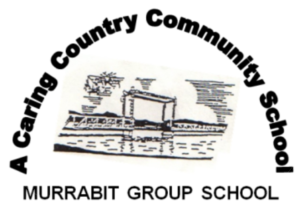
Koondrook Primary School aims to develop all students’ literacy skills in the areas of reading, writing, spelling, speaking and listening and thinking.
In Grade P-2, students learn how sounds in English are represented and use their knowledge to gain meaning from print. They practise reading and writing a variety of text types to achieve fluency and develop comprehension strategies.
In Grade 3-4, students continue to build on their literacy skills through a range of whole class and small group activities in order to become successful readers and writers.
In Grade 5-6, students consolidate and build on their knowledge and skills related to language and texts. They become independent readers and writers who take more responsibility for their learning.
Intervention Program
An Intervention Program is available for Grade 1 who need extra support in developing their literacy skills. This program enables the Grade 1 students to work individually with the intervention teacher.


Speaking & Listening
Speaking and Listening is the key to all communication and is the precursor to writing and reading. At Koondrook Primary School, students are given many opportunities both formally and informally to participate in opportunities to be a speaker and a listener. Walker Learning provides this through focus students and class meeting (senior grades), as well as in Grades 3-6 participating in the Lions' Club Public Speaking Competition.
Students participate in individual, small group and large group opportunities to express their thoughts and ideas.
A Speech Pathology Service is provided by the Swan Hill Support Services. All Foundation (Prep) are screening through a language assessment during the first Semester. The Speech Pathologist currently visits the school fortnightly on a Monday.

Reading
Mini Lesson
The teacher explicitly models a short focussed lesson on a comprehension strategy. The comprehension strategies identified as the most important strategies to improve students’ comprehension of text include: Prediction/Prior Knowledge, Questions and Questioning, Think-aloud, Text Structures and Features, Visualising and Summarisation.
Independent Reading
The students select and read a ‘Just Right’ book, (Just Right – able to be read with 90%+ accuracy) from the classroom library and practise the skills/knowledge demonstrated in the mini lesson, as well as previous lessons, and work on their individual reading goal. Students might use their Reading Journal to record their thinking.
Guided Reading
While the majority of the grade works independently, the teacher brings together a small group to explicitly teach effective reading strategies for fiction and/or information texts. The teacher selects teaching points based on readers’ needs, (identified through assessment and conferences with individual children), and sometimes assigns oral and/or written response tasks.
Individual Student Conferences
At the conclusion of the guided practice group, the teacher will conference with individual students who have been reading independently, engaging in a conversation with the student about their reading. The conference enables the teacher to understand each student’s reading progress and to help the individual student refine and extend his/her reading competence. The conference ends with an agreed reading goal the student will practice for the next few lessons or until achieved. The information gathered from the conferences informs the teaching for future lessons.
Share time
The group share is related to the mini-lesson. Group share reinforces students’ reading and extends their thinking as they benefit from the thoughts and ideas of others.
 Writing
Writing
Mini Lesson
The teacher explicitly teaches a specific writing principle or procedure. These include:
Strategy and skill mini-lessons help students learn how to use the conventional rules of written language accurately and effectively.
Craft mini-lessons show students how to improve the quality of their writing over time through explicitly showing them what makes good writing.
Independent Writing
The students write for a designated time and apply new knowledge from the mini-lesson to individual writing. Students explore topics, draft, revise, edit and publish.
Guided Writing
While the majority of the grade works independently, the teacher brings together a small group for a lesson based on particular interests or needs. The teacher explicitly works with students to teach the writer’s craft, strategies and skills.
Individual Student Conferences
At the conclusion of the guided practice group, the teacher will conference with individual students who have been writing independently. The purpose of a writing conference is to help students help students extend their writing strategies, listen to students talk about their writing, evaluate students’ progress in writing and to assist students to set writing goals. The information gathered from the conferences informs the teaching for future writing lessons.
Share time
The group share is related to the mini-lesson. Group share reinforces students’ writing and extends their thinking as they benefit from the thoughts and ideas of others.
